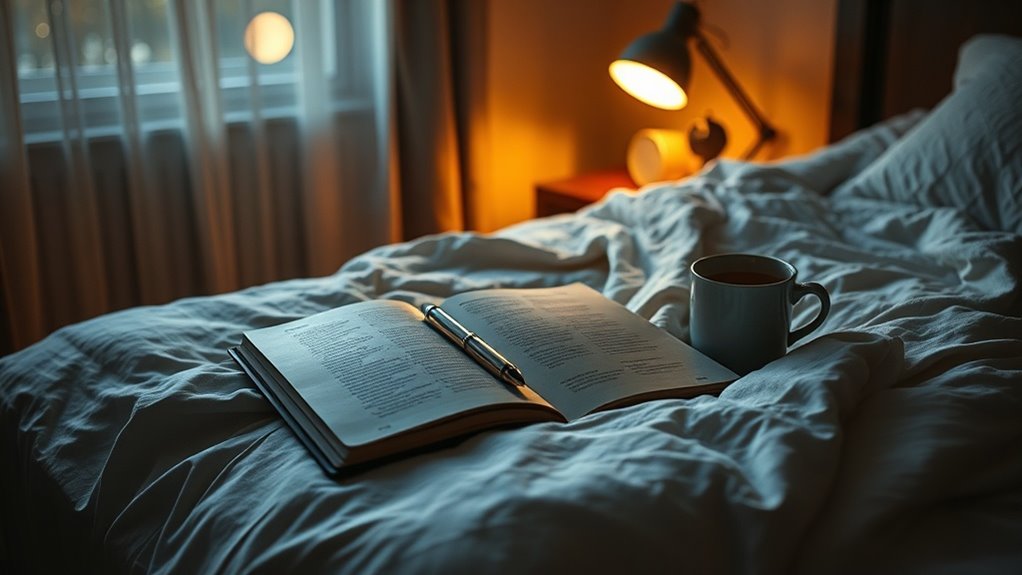Journaling Before Bed Helped Me Sleep Like Never Before
Did you know that journaling can significantly improve your sleep quality? By putting pen to paper before bed, you’re able to clear your mind of lingering thoughts and worries. This simple act helps create a sense of calm, making it easier to drift off. But how exactly does this nightly ritual work, and what specific practices can enhance your experience? Let’s explore the transformative power of bedtime journaling and its impact on restful sleep.
The Science Behind Journaling and Sleep
As you wind down for the night, journaling can play a crucial role in enhancing your sleep quality.
Research shows that writing down your thoughts helps clear your mind, reducing anxiety and stress.
This practice of journaling for better sleep not only prepares your brain for rest but also encourages deeper sleep cycles, making it an effective tool for improving overall well-being. Additionally, establishing a consistent practice of daily reflection can amplify the benefits of journaling by nurturing self-awareness and emotional wellness.
My Journey to Better Sleep
After realizing the positive impact journaling had on my sleep, I decided to embark on my own journey to better rest.
I explored various prompts, reflecting on daily stressors and gratitude. Each entry became a release, allowing my mind to unwind. Engaging in creative hobbies also helped me to further express myself and distract from racing thoughts, contributing to my overall well-being.
Slowly, I noticed my sleep improving, waking up refreshed and energized. Journaling transformed my routine into a restful sanctuary each night.
Practical Tips for Starting a Nightly Journaling Habit
If you’re ready to establish a nightly journaling habit that enhances your sleep, starting small can make all the difference.
Choose a comfortable space and set aside 5-10 minutes. Focus on your thoughts or daily events rather than perfection. Use prompts if you’re stuck, and don’t worry about grammar. Incorporating elements of grounding practice can further enhance the relaxation you achieve before bedtime.
Consistency is key, so try to write at the same time each night.
Reflecting on Gratitude and Its Impact on Sleep
Building on your nightly journaling practice, incorporating reflections of gratitude can significantly enhance your overall sleep quality.
Thinking about what you’re thankful for helps shift your focus from stressors to positive experiences, promoting relaxation.
By recognizing the good in your life, you clear your mind, paving the way for deeper rest.
A grateful heart truly cultivates tranquility, setting the stage for restorative sleep. Engaging in practices like practicing mindfulness can further complement your journaling routine by enhancing your emotional resilience.
Creating the Perfect Bedtime Journaling Environment
How can you create a cozy and inspiring space for your bedtime journaling?
Choose a quiet corner, dim the lights, and add soft pillows or a blanket for comfort.
Use calming scents, like lavender, to enhance relaxation.
Keep your journaling materials accessible, but clutter-free.
Finally, consider playing gentle music or nature sounds to foster a tranquil atmosphere, allowing your thoughts to flow freely. Incorporating sound therapy can also enhance relaxation as you prepare for sleep.

